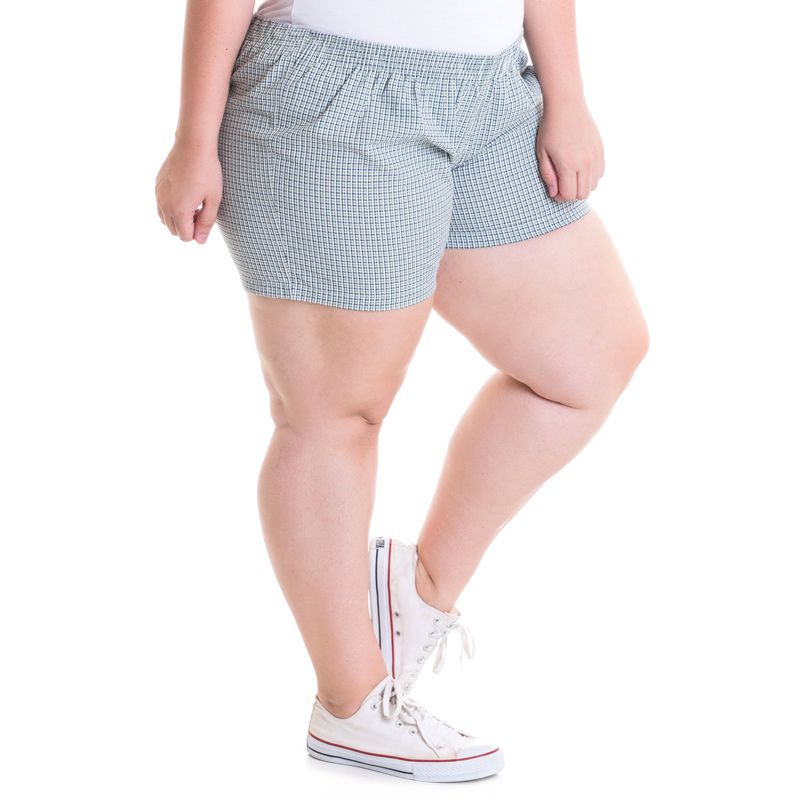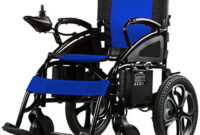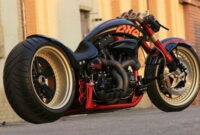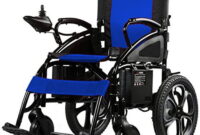Short Bed Pickup Trucks: The Agile Workhorse pickup.truckstrend.com
In the diverse world of pickup trucks, where size often dictates capability, the short bed configuration stands out as a unique and increasingly popular choice. Far from being a compromise, short bed pickup trucks offer a compelling blend of utility, maneuverability, and daily driving comfort that resonates with a broad spectrum of buyers. These vehicles redefine what a pickup can be, moving beyond the traditional image of a pure workhorse to become a versatile companion for both adventure and everyday life. This article will delve into the essence of short bed pickups, exploring their characteristics, benefits, ideal applications, and practical considerations for anyone looking to make one their next vehicle.
What Defines a Short Bed Pickup Truck?
Short Bed Pickup Trucks: The Agile Workhorse
At its core, a short bed pickup truck is characterized by a cargo bed typically ranging from 5.5 feet to 6.5 feet in length. This contrasts with standard beds (around 6.5 to 8 feet) and long beds (8 feet or more). The short bed is most commonly paired with a crew cab configuration, offering maximum passenger space while keeping the overall vehicle length manageable. This specific combination has become the most popular truck configuration on the market, appealing to families, urban dwellers, and recreational users alike. The reduced bed length directly impacts the truck’s wheelbase and overall footprint, leading to distinct driving dynamics and utility profiles.
The Unmistakable Benefits of Going Short
Choosing a short bed pickup truck comes with a host of advantages that make it an attractive option for many drivers:
- Superior Maneuverability: This is arguably the biggest selling point. A shorter wheelbase translates to a tighter turning radius, making short bed trucks much easier to navigate in crowded city streets, parking lots, and even tight off-road trails. Parallel parking becomes less of a daunting task, and navigating multi-story car parks is significantly less stressful.
- Easier Garaging and Storage: Many standard residential garages struggle to accommodate full-size trucks with longer beds. Short bed trucks, especially when paired with a crew cab, often fit comfortably within a standard garage, protecting your investment from the elements and enhancing security.
- Enhanced Daily Driver Characteristics: The reduced overall length contributes to a more car-like driving experience. They feel less cumbersome and more agile, making them excellent choices for daily commutes, school runs, and general errands where a traditional long-bed truck might feel unwieldy.
- Aesthetic Appeal: Many enthusiasts find the proportions of a crew cab short bed visually balanced and sporty. This configuration often looks less like a pure work vehicle and more like a rugged, versatile SUV alternative.
- Slightly Better Fuel Economy: While not a dramatic difference, a shorter, lighter truck can sometimes offer marginal improvements in fuel efficiency due to reduced weight and aerodynamic drag compared to its longer-bed counterparts.
- Ideal for Families: When combined with a spacious crew cab, the short bed truck provides ample room for passengers while still offering the utility of an open bed for recreational gear, groceries, or DIY supplies. This makes it a popular choice for families who need both passenger comfort and occasional hauling capability.

Ideal Use Cases: Who Benefits Most?
Short bed pickup trucks excel in a variety of scenarios, making them a versatile choice for a diverse audience:
- Recreational Enthusiasts: Perfect for hauling mountain bikes, camping gear, surfboards, dirt bikes (with the tailgate down or an extender), and smaller ATVs. They’re also great for towing smaller boats, jet skis, or utility trailers for weekend getaways.
- Urban and Suburban Drivers: For those living in areas with tighter spaces, the improved maneuverability and parking ease are invaluable. They offer the utility of a truck without the parking headaches often associated with longer vehicles.
- Off-Roading Adventurers: A shorter wheelbase is a significant advantage on challenging trails, allowing for better break-over angles and easier navigation around obstacles. Many dedicated off-road builds utilize short bed platforms.
- Light Hauling Needs: From trips to the hardware store for lumber or gardening supplies to moving furniture for a friend, short beds handle typical household and recreational hauling tasks with ease.
- Daily Commuters: For individuals or families who appreciate the commanding driving position and rugged image of a truck but primarily use it for daily commuting and errands, the short bed offers the right balance.
Navigating Challenges and Finding Solutions
While short beds offer numerous advantages, their inherent design presents certain limitations that potential owners should be aware of. Fortunately, many of these can be easily addressed:
- Limited Cargo Capacity for Long Items: The most obvious challenge is fitting items longer than 5.5-6.5 feet.
- Solution: Utilize the tailgate in the down position, employ bed extenders, or invest in a roof rack or ladder rack for truly long items like lumber, kayaks, or ladders.
- Less Stable for Heavy Towing/Hauling (Compared to Long Beds): A shorter wheelbase can sometimes lead to reduced stability when towing very heavy or long trailers, increasing the risk of trailer sway.
- Solution: Always use proper weight distribution hitches, ensure correct tongue weight, and consider aftermarket suspension enhancements like airbags for heavy loads. For consistent heavy hauling, a long bed truck might still be the superior choice.
- Reduced Bed Space for Large Equipment: Large toolboxes or specialized equipment might take up a significant portion of the already limited bed space.
- Solution: Opt for compact, in-bed toolboxes, utilize under-seat storage in the cab, or consider a tonneau cover to secure items in the bed.
- Payload Limitations: While the bed length doesn’t directly dictate payload, short bed trucks often come in configurations (e.g., half-ton crew cabs) that have specific payload limits.
- Solution: Always check the truck’s specific payload capacity (found on the door jamb sticker) and avoid overloading.
Popular Short Bed Models and Configurations
The short bed configuration is prevalent across all segments of the pickup truck market, from mid-size to heavy-duty.
- Mid-Size Trucks: Models like the Toyota Tacoma, Chevrolet Colorado/GMC Canyon, Ford Ranger, and Nissan Frontier frequently offer short bed options (often around 5 feet). These are incredibly popular for their blend of capability and even greater maneuverability than full-size trucks.
- Full-Size Light Duty Trucks: This is where the short bed truly dominates, particularly with crew cab configurations. The Ford F-150, Ram 1500, Chevrolet Silverado 1500/GMC Sierra 1500, and Toyota Tundra all offer 5.5-foot or 6.5-foot beds as primary options, often standard with the crew cab.
- Full-Size Heavy Duty Trucks: While less common, even heavy-duty trucks like the Ford F-250/350, Ram 2500/3500, and Chevy Silverado/GMC Sierra 2500/3500 offer short bed (typically 6.75-foot) options, primarily for those who need extreme towing/payload capacity but still desire improved maneuverability.
Maximizing Your Short Bed’s Utility
To get the most out of your short bed truck, consider these practical tips:
- Invest in a Quality Bed Liner: Protect your bed from scratches and dents. Spray-in liners offer superior durability.
- Cargo Management Systems: Bed dividers, tie-downs, and sliding cargo rails can help organize and secure smaller items, preventing them from shifting during transit.
- Tonneau Cover or Truck Cap: A tonneau cover (soft or hard) keeps your cargo secure and out of the elements. A truck cap (camper shell) transforms your bed into an enclosed, weatherproof storage area, essentially making it an SUV with an open-air option.
- Bed Extender: These clever devices attach to your tailgate and effectively extend your bed length when the tailgate is down, perfect for longer items like lumber or dirt bikes.
- Roof Rack: For items that simply won’t fit in the bed (like kayaks, canoes, or extra luggage), a sturdy roof rack is indispensable.
- Small Utility Trailer: For occasional large hauls, a small utility trailer is a cost-effective solution that allows you to carry far more than any pickup bed could.
Buying Considerations for Short Bed Trucks
When in the market for a short bed pickup, keep the following in mind:
- Assess Your Primary Needs: Be honest about what you’ll use the truck for most often. If it’s daily driving and light recreational use, a short bed is likely ideal. If heavy, consistent hauling of long items is your main priority, a longer bed might be better.
- Test Drive: Drive different configurations if possible. Experience how a short bed handles compared to a long bed, especially in parking scenarios.
- Check Payload and Towing Capacities: Don’t assume. Always verify the specific truck’s payload and towing ratings to ensure it meets your potential needs.
- Aftermarket Accessories: Factor in the cost and availability of accessories you might need to enhance utility (bed covers, racks, etc.).
- Resale Value: Short bed crew cab configurations typically hold their value very well due to their high demand.
Representative Short Bed Pickup Truck Price Ranges (Estimated MSRP)
Please note that these are estimated starting MSRP ranges for popular short bed configurations (often Crew Cab Short Bed) for new vehicles. Prices vary significantly based on trim level, engine choice, optional features, dealership, location, and market conditions. Used truck prices will differ greatly.
| Truck Segment | Popular Models | Typical Bed Length (Approx.) | Estimated Starting MSRP Range (New) | Key Considerations |
|---|---|---|---|---|
| Mid-Size Trucks | Toyota Tacoma, Chevy Colorado, Ford Ranger, Nissan Frontier | 5.0 – 5.5 feet | $29,000 – $45,000 | Agile, good for city, lighter hauling/towing |
| Full-Size Light Duty | Ford F-150, Ram 1500, Chevy Silverado 1500, Toyota Tundra | 5.5 – 6.5 feet | $38,000 – $65,000 | Most popular, versatile, strong daily drivers |
| Full-Size Heavy Duty | Ford F-250, Ram 2500, Chevy Silverado 2500 | 6.75 feet | $50,000 – $80,000 | Max towing/payload, less common short bed option |
Disclaimer: Prices are highly variable and subject to change without notice. Always check manufacturer websites and local dealerships for the most current and accurate pricing.
Frequently Asked Questions (FAQ) About Short Bed Pickup Trucks
Q1: What is considered a "short bed" on a pickup truck?
A1: A short bed typically refers to a truck bed ranging from approximately 5.5 feet to 6.5 feet in length.
Q2: Are short bed trucks good for hauling?
A2: Yes, for most common household, recreational, and light commercial hauling needs. They can carry common items like appliances, furniture, bags of mulch, or camping gear. For very long items (e.g., 10-foot lumber), you’ll need to leave the tailgate down or use a bed extender.
Q3: Do short beds tow as well as long beds?
A3: Short beds can tow very well within their rated capacities. However, a longer wheelbase (found on long bed trucks) generally offers greater stability when towing very heavy or long trailers, reducing the likelihood of trailer sway. For typical recreational towing (boats, campers), short beds are perfectly capable.
Q4: Are short bed trucks cheaper than long bed trucks?
A4: Not necessarily. The bed length itself usually doesn’t significantly alter the base price of a truck. Price is more dependent on the trim level, engine, drivetrain (2WD/4WD), and cab configuration (regular, extended, crew cab). Short beds are often standard with the more expensive crew cab option, which might make the overall vehicle price higher.
Q5: Can you fit a dirt bike in a short bed?
A5: Yes, most full-size short beds can accommodate a single dirt bike with the tailgate down and a bed extender. Mid-size short beds might struggle with larger dirt bikes and typically require the tailgate down.
Q6: What’s the typical length of a short bed?
A6: For full-size trucks, common short bed lengths are 5.5 feet or 6.5 feet. For mid-size trucks, they are often around 5 feet.
Q7: Are short beds better for off-roading?
A7: Generally, yes. The shorter wheelbase of a short bed truck improves break-over angles, making it easier to navigate steep inclines and declines without scraping the undercarriage. It also allows for a tighter turning radius, which is beneficial on narrow, winding trails.
Conclusion
Short bed pickup trucks have carved out a significant niche in the automotive market, proving that capability doesn’t always require immense size. They represent a harmonious blend of passenger comfort, daily driving practicality, and genuine utility. While they may not be the ideal choice for those who consistently haul extremely long or heavy items, their superior maneuverability, ease of parking, and family-friendly cabin configurations make them an increasingly popular and sensible option for a vast majority of truck buyers. For anyone seeking a versatile vehicle that can tackle both the urban jungle and the great outdoors with equal aplomb, the short bed pickup truck stands ready as the agile workhorse.


